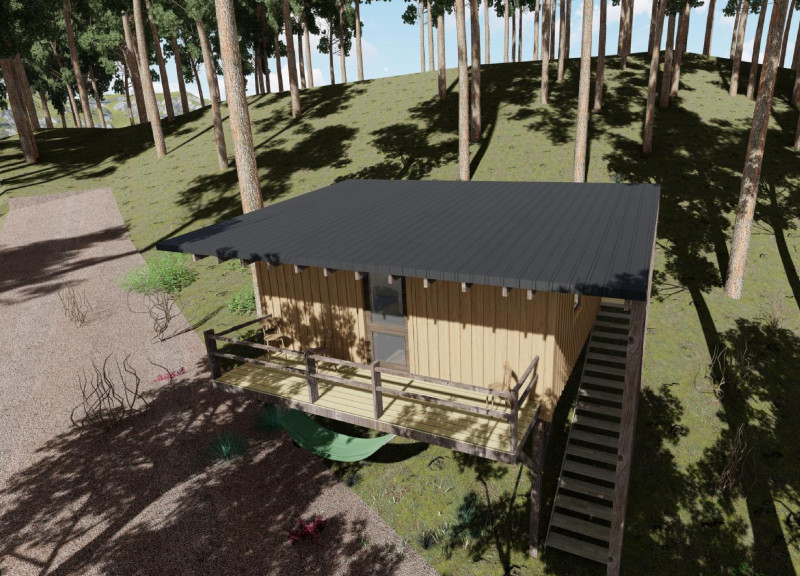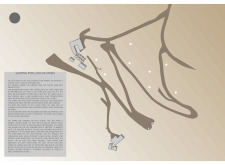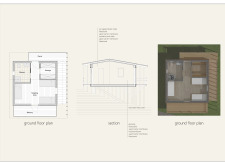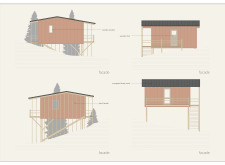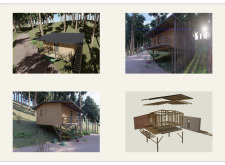5 key facts about this project
The sleeping pods at the Vale de Moses Yoga Retreat are eco-friendly accommodations located on the retreat's scenic slopes. The design emphasizes sustainability and functional living, aiming to provide comfort and accessibility in a peaceful natural setting. The concept carefully integrates the buildings with the landscape, enhancing the retreat's focus on relaxation and well-being.
Material Selection and Sustainability
Wooden structures form the basis of each cabin, contributing to both the look and strength of the pods. Effective heat insulation keeps the interior comfortable regardless of the weather outside. Roofs made from corrugated metal sheeting provide durability while ensuring proper water drainage. Together, these choices support an environmentally conscious approach that also reflects the retreat’s purpose.
Spatial Organization and Functionality
These pods are designed with essential living spaces, including a sleeping area, a shower, and room for storage. The sleeping area measures 16m², which accommodates couples or small groups. This layout promotes practical use of space, making sure that necessary amenities are within easy reach while maintaining a compact design. Elevation on field screws minimizes ground impact and helps with drainage, allowing the natural landscape to remain intact.
Energy Efficiency and Resource Conservation
Energy efficiency is a key focus of the design. Roofs are planned to support solar panels, allowing the use of renewable energy for heating water and powering electricity needs. Rainwater can be collected from these roofs for various uses, such as irrigation and handwashing. Also, a gray water system has been integrated to improve water efficiency while managing wastewater in an environmentally friendly way.
Natural light plays an important role in creating a welcoming atmosphere inside the pods. The placement of wooden doors and windows enhances ventilation and connects the occupants to the surrounding landscape. This thoughtful arrangement allows guests to enjoy both comfort and the beauty of nature.


